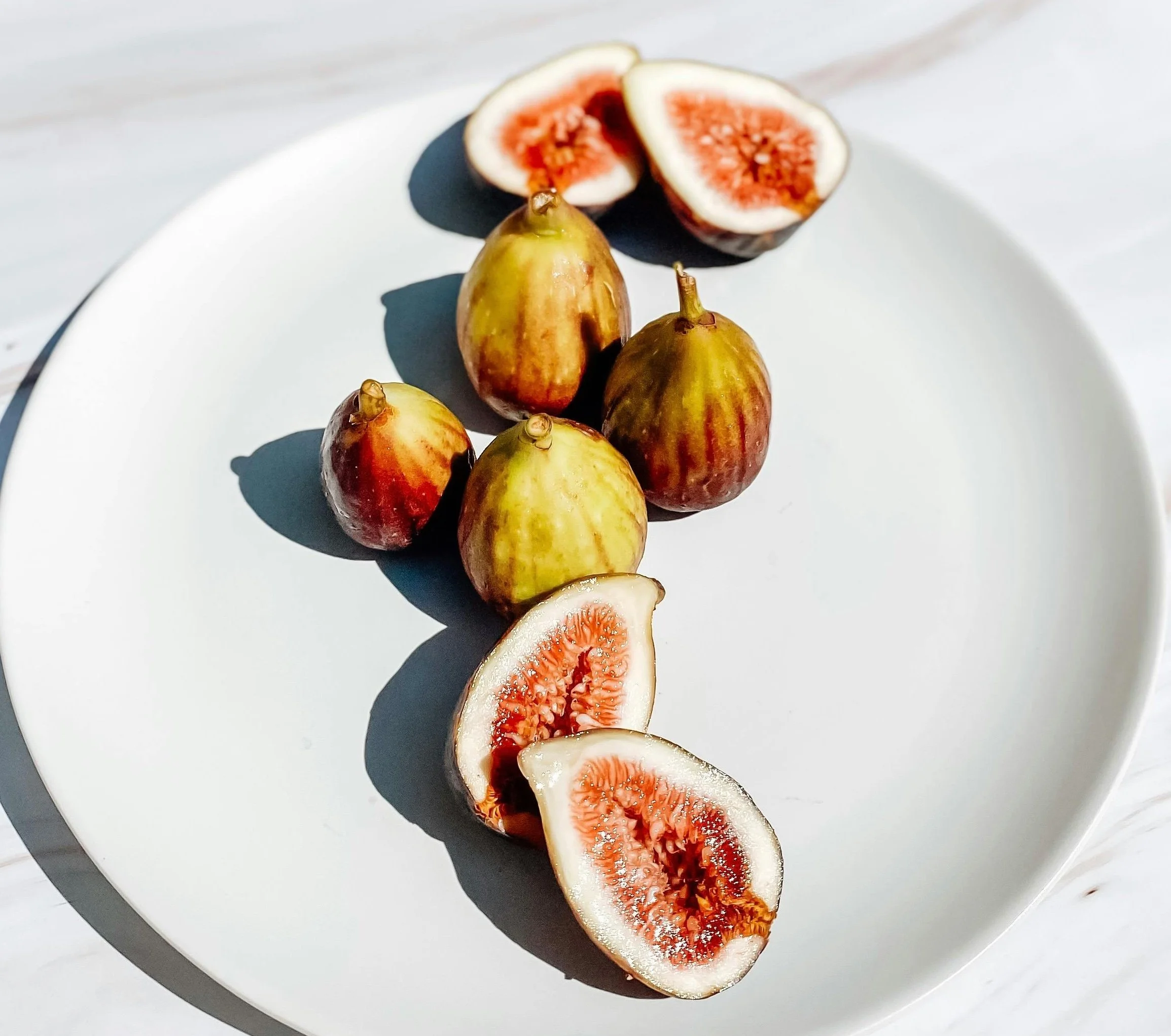The Histamine-ADHD Connection: How Seasonal Allergens Affect Focus and Mood
Feeling more distracted, overwhelmed, or moody lately? It’s not just spring fever — histamine could be playing a hidden role.
For many families and individuals navigating ADHD, spring and summer can bring more than warmer weather and blooming flowers. It can also mean rising histamine levels — and for sensitive brains, this can be problematic.
Histamine is often thought of as the key player in allergies - think allergy medicines, which are called antihistamines. But histamine does much more, especially in the brain. When histamine is released in the body, it can increase the excitability of cells in the brain and affect the release of neurotransmitters that affect focus, motivation, and mood. This is why histamine is sometimes referred to as a regulator of “whole brain” activity (Hough, 1999).
When histamine levels rise (hello, pollen season and summer hay fever), it can throw off this delicate balance and worsen ADHD symptoms.
How Histamine Impacts ADHD and Brain Function
Histamine isn’t just about sneezing and itchy eyes. In addition to the immune system, it plays essential roles in gastrointestinal health, smooth muscle contraction in the lungs, cardiovascular health, and brain function. So how exactly does histamine affect brain health?
Histamine in the brain acts as a neurotransmitter and these neurons play key roles in regulating memory, learning, movement, circadian rhythms, and appetite (Blasco-Fontecilla, 2023). It even helps regulate the release of other neurotransmitters, including dopamine, which is crucial for focus, motivation, and emotional regulation (Blasco-Fontecilla, 2023).
What does this mean? Histamine could be negatively impacting key neurotransmitters making cognitive functions like working memory, motivation, and clarity difficult – all of which can lead to feeling foggy, hyper, or compulsive.
What Affects Histamine Levels in the Body?
If histamine is so important in the body, you’re probably wondering what causes levels to be too high. Let’s take a look at what can cause excess histamine:
1. Certain Foods
Some foods can inhibit an enzyme called DAO which is essential for histamine breakdown. Other foods encourage histamine release, AKA histamine liberators. When excessive histamine release is coupled with an impaired ability to break down histamine, you might experience increased sneezing, flushing, headaches, skin issues, and even asthma attacks (Maintz & Novak, 2007). Here’s a few examples of histamine liberators or high-histamine foods:
Alcohol (this is a big one because it’s rich in histamine and a potent inhibitor of DAO - meaning high histamine and impaired ability to break it down)
Strawberries, citrus, dried fruits
Spinach, tomatoes, eggplant
Aged and fermented foods - aged cheeses, yogurt, kraut, kombucha, sourdough, processed meat
Seafood, especially canned fish
Leftovers
Egg whites
Chocolate
2. Environmental Allergens
When you’re exposed to environmental allergens (like pollen during allergy season), your immune system sees these allergens as harmful invaders. In response, it releases histamine to help your body get rid of the allergens. This is what triggers allergy symptoms like sneezing, runny nose, and itchy eyes — but it also increases overall histamine levels in your body. For some individuals with ADHD, this added histamine load may contribute to changes in mood, focus, or energy, but it’s important to keep in mind that individual responses and sensitivities to histamine can vary widely.
3. Stress and Lack of Sleep
When you’re under increased stress or not getting enough sleep, your body shifts into “alert” mode. This state can cause certain cells (like mast cells) to release more histamine as part of the body’s natural defense and wakefulness systems. While this helps keep you awake and responsive, periods of high stress or poor sleep can lead to excess histamine, making you feel wired, irritable, restless, or mentally foggy.
And when is stress and poor sleep especially common?
Spring and the end of the school year when everyone is busy with deadlines, exams, graduation parties, weddings, and the start of summer travel. These increased responsibilities and demands peak stress — which can trigger even more histamine release on top of allergy season and exacerbate ADHD symptoms.
Remember, Allergy Season = Higher Histamine Levels
In spring and summer, airborne allergens like pollen naturally boost histamine in the body. For kids and adults with ADHD, this extra histamine load can:
Make focusing and emotional regulation harder
Increase cravings for sugar and processed foods (giving you a quick dopamine hit)
Disrupt sleep (histamine is a wakefulness-promoting chemical)
Not All ADHD Symptoms Are Triggered by Histamine
If your child or teen seems extra distracted, irritable, or hyper right now, seasonal histamine surges could be part of the reason; however, not everyone with ADHD will be affected by histamine in the same way. While seasonal surges in histamine may exacerbate symptoms for some, others may not notice any changes at all. Genetics, diet, gut health, and overall histamine tolerance all play a role.
At GreenMind, we offer genetic testing for key enzyme variants like DAO and HNMT, which are involved in breaking down histamine in the body. Individuals with variations in these genes may be more susceptible to histamine-related symptoms — especially during allergy season or times of high stress. Knowing your genetic predisposition can help personalize and guide more targeted support.
Natural Ways to Support Healthy Histamine Levels and Ease ADHD Symptoms
So are you or your child destined to suffer from increased symptoms during allergy season? No! While you can’t avoid pollen, you can support your body in naturally breaking down histamine and reducing your overall histamine load:
1. Reduce High-Histamine Foods Temporarily
When you notice a flare in symptoms, try eliminating intake of high-histamine foods for 2-3 weeks to lessen your total histamine burden. If this improves your symptoms, add these foods back in slowly and identify particular foods that trigger symptoms. Remember, not all “high-histamine” foods cause reactions in every individual, and your tolerance may change depending on the level of environmental allergens, stress load, and sleep quality. During allergy season, you may find your tolerance for these foods to be lower.
Stick to fresh foods. Remember that leftovers accumulate histamine even if they’re “low-histamine” ingredients.
Stay hydrated! Drinking plenty of filtered water can also aid in histamine clearance.
2. Include 1-2 Daily Servings of Foods that Lower Histamine Production
These foods are thought to help stabilize mast cells, reducing their histamine release. Try incorporating more of these foods in their fresh forms (not dried or aged):
Herbs - Cinnamon, dill, fennel, oregano, thyme
Vegetables - Green peppers, green beans, onions
Fruits - Apples, juniper berries
Other foods - Brazil nuts, capers
3. Include 1-2 Daily Servings of Foods that Break Down Histamine
The following foods can help support DAO enzyme activity, improving your body’s ability to handle and get rid of excess histamine.
Herbs - Basil, rosemary
Sprouted legumes - Lentils, mung beans, chickpeas, black beans
Shop truRoots sprouted legumes in the GreenMind Amazon storefront.
Vegetables - Asparagus, artichokes, broccoli, cabbage, cauliflower
Fruits - Fresh figs, grapes, mangoes, coconut milk or fresh flesh, fresh berries (aside from strawberries)
Protein - Egg yolks, pasture-raised poultry, lamb, grass-fed and finished red meat
4. Prioritize Quality Sleep
Sleep loss and erratic sleep schedules can exacerbate histamine-related challenges and make ADHD symptoms worse. Focus on:
Consistent sleep/wake schedules - Routines may need to be adjusted during summertime, but find a schedule that works for you and your family and stick to it. Set a “get ready for bed” alarm on your phone to keep yourself accountable!
Screen-free wind-down routines - Read a book, take a bath, or practice deep breathing/meditation. Find a phone-free bedtime routine that you enjoy and you’ll feel the difference in your sleep quality.
Check out our Sleep Favorites on the GreenMind Amazon Storefront for our top teas, supplements, and products to promote a great night's rest.
5. Support Your Body with Supplements
Natural D-Hist by Ortho Molecular Products - This is a favorite of ours! D-Hist is a blend of antioxidants, enzymes, and herbs that can help support allergy symptoms and sinus issues for those struggling with elevated histamine. Find it in the GreenMind Fullscript store.
Consider DAO enzymatic support if diet alone doesn’t resolve your symptoms.
If spring and summer seem to bring more than just seasonal allergies — with focus issues, irritability, hyperactivity, headaches, brain fog, and restless nights — histamine could be the missing piece of the puzzle. For individuals with ADHD, this naturally occurring chemical doesn’t just cause sneezing and sniffles. It can disrupt neurotransmitters and make emotional and cognitive regulation even harder during an already busy season.
The good news? There’s something that you can do about it. By making simple, targeted shifts in diet and supporting better sleep and stress management, you can reduce your histamine load and help restore balance. While you can’t avoid pollen or eliminate stress completely, you can create an environment — inside and out — that helps the brain thrive even when histamine levels are high.
If you or your child is feeling "off" during allergy season, know it’s not just in your head — and small, thoughtful changes can make a big difference.
Sources
Blasco-Fontecilla H. (2023). Is histamine and not acetylcholine the missing link between ADHD and allergies? Speer allergic tension fatigue syndrome re-visited. Journal of Clinical Medicine, 12(16), 5350. https://doi.org/10.3390/jcm12165350
Hough, L. B. (1999). Histamine actions in the central nervous system. Basic Neurochemistry: Molecular, Cellular and Medical Aspects. 6th edition. https://www.ncbi.nlm.nih.gov/books/NBK28245/
Maintz, L., & Novak, N. (2007). Histamine and histamine intolerance. The American Journal of Clinical Nutrition, 85(5), 1185–1196. https://doi.org/10.1093/ajcn/85.5.1185





